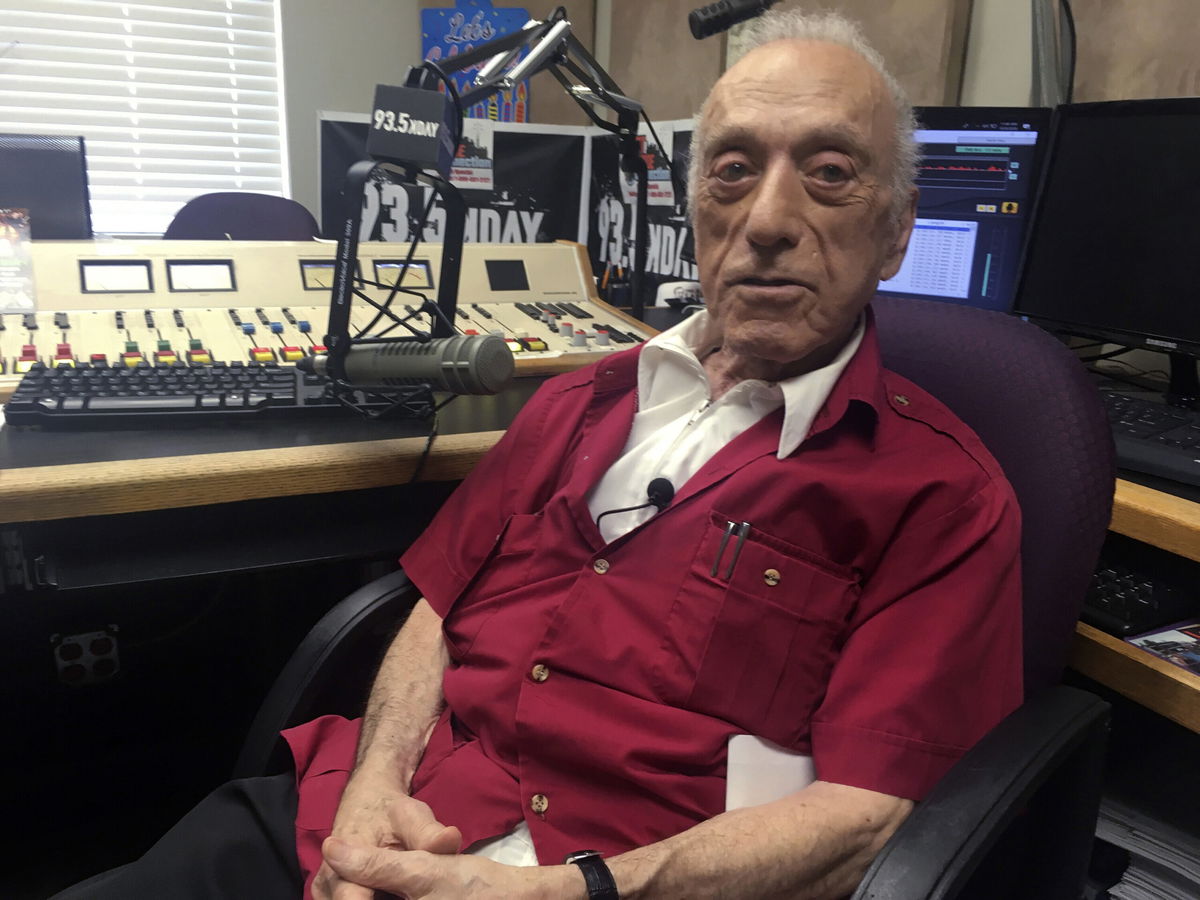Art Laboe, beloved California DJ who popularized ‘oldies but goodies,’ dies at 97

Art Laboe
By Scottie Andrew, CNN
Generations of Californians have never known a time without Art Laboe — spinning records on air, dedicating songs to dedicated listeners and turning younger audiophiles onto “oldies but goodies.”
But after nearly 80 years on the air, Laboe, a legendary DJ and beloved Los Angeles personality, has hung up his microphone for good.
Laboe died on Friday after a short bout of pneumonia, his spokesperson Joanna Morones confirmed to CNN. He was 97.
Laboe helped desegregate Southern California
Laboe, born Arthur Egnoian, started DJing in 1943 as a teenager, he said in an interview with the Orange County Register. (The way he told it to the National Association of Music Merchants, he waltzed into the station manager’s office and sheepishly asked for the job. Since most of the station’s engineers were serving in World War II, he got the job.)
In 1949, he came to Los Angeles and began what would be a seven-decade career in the city. He started playing rock and R&B due to audience demand, he told the Desert Sun in 2016: He would broadcast live, all night and into the early morning, from the Scrivner’s Drive-In parking lot and took requests from the young people who frequented it.
“At night, kids would bring their own records in and I would play them,” he said. “They were crazy about all the Black artists.”
Laboe was one of the first popular DJs to desegregate the airwaves, playing songs by beloved Black artists like Little Richard and The Shirelles for listeners from all racial backgrounds, according to a statement from Laboe’s company, Dart Entertainment. His popularity among Angelenos attracted teens of all races to his live dancehall events, too, and so he helped desegregate those venues, too. He was especially loved by Latino listeners for frequently incorporating lesser-known Chicano soul bands into his lineup of what he called, and later trademarked, “oldies but goodies.”
The phrase became Laboe’s signature, and, beginning in 1959, he released a series of compilation records called “Oldies But Goodies” under his own record label. Beginning in 1972, he hosted a show dedicated to playing nothing but oldies, the first station of its kind, according to the Radio Hall of Fame, into which Laboe was inducted in 2012.
Laboe was also one of the first DJs to welcome listeners to dedicate a song to their loved ones: They’d call in or visit him live when he’d record at the drive-in, leave a message for someone (typically a significant other) and select a song in their honor. It was one of the few places at the time when Mexican Americans, as well as other people of color, living in Los Angeles could find “a medium through which their voices could be heard,” wrote Anthony Macias, University of California, Riverside professor, in 2004.
Also among those receiving dedications — prisoners. Laboe regularly fielded requests from listeners whose loved ones were serving time. The artist Speak, a native Angeleno, told Pitchfork in 2015 that he was listening to Laboe’s show once when he heard his brother, an inmate at Wasco State Prison, call in and dedicate a song to him.
“Art’s voice is the glimmer of hope that everything will be okay,” Speak said. “When he reads your name and message, you feel like an old friend is comforting you.”
Laboe was beloved by Californian listeners
Up until his death, Laboe hadn’t changed much about his routine, and his baritone voice certainly hadn’t lost its shine. He was still hosting his own radio show and emceeing live concerts, jobs he started 70 years earlier. Most recently, he hosted “The Art Laboe Connection” on station KDAY.
In September, the 79th anniversary of Laboe’s radio debut, the nonprofit station dublab flipped the script on Laboe and sent dedications to him. Over an hour and a half, fans called in to give Laboe songs (and kisses): One requested “18 With a Bullet” because Laboe played it for her when she turned 18. Another fan across the country who spent most of her life listening to Laboe requested “La-La Means I Love You.” A fellow broadcaster inspired by Laboe dedicated, of course, “Those Oldies but Goodies,” a song that used the same phrase Laboe was credited with popularizing.
In a 2015 essay after Laboe’s L.A.-based show was temporarily pulled from airwaves, writer Adam Vine mourned the loss of the “lifeline” that was Laboe’s show for countless listeners.
“Art Laboe lets the songs give the advice. He serves merely as a messenger of dedications with a classic radio voice,” Vine wrote. “Art Laboe’s highest achievement is that he connects people separated by distance and time.”
Laboe’s show returned then, and now, the show will go on without him. In a statement shared by Morones, Dart Entertainment said it will continue to broadcast his nightly show and accept dedications in his absence — so his “legacy will endure.”
The-CNN-Wire
™ & © 2022 Cable News Network, Inc., a Warner Bros. Discovery Company. All rights reserved.
